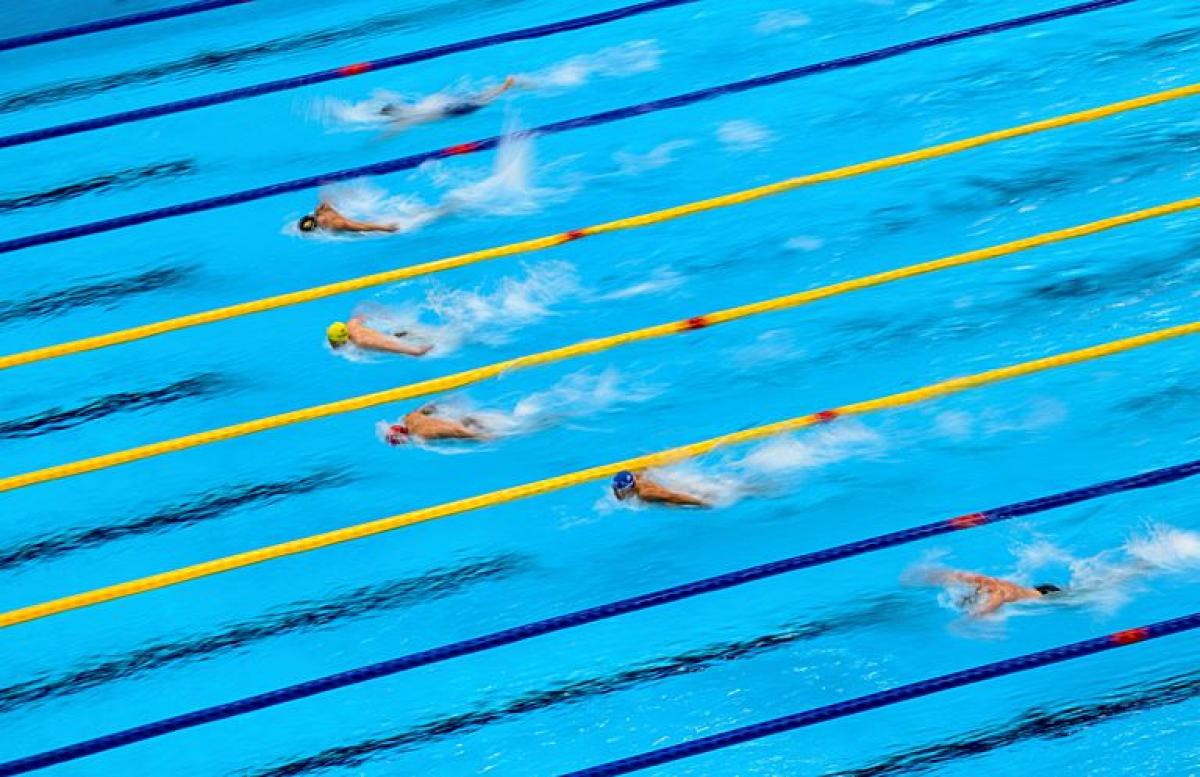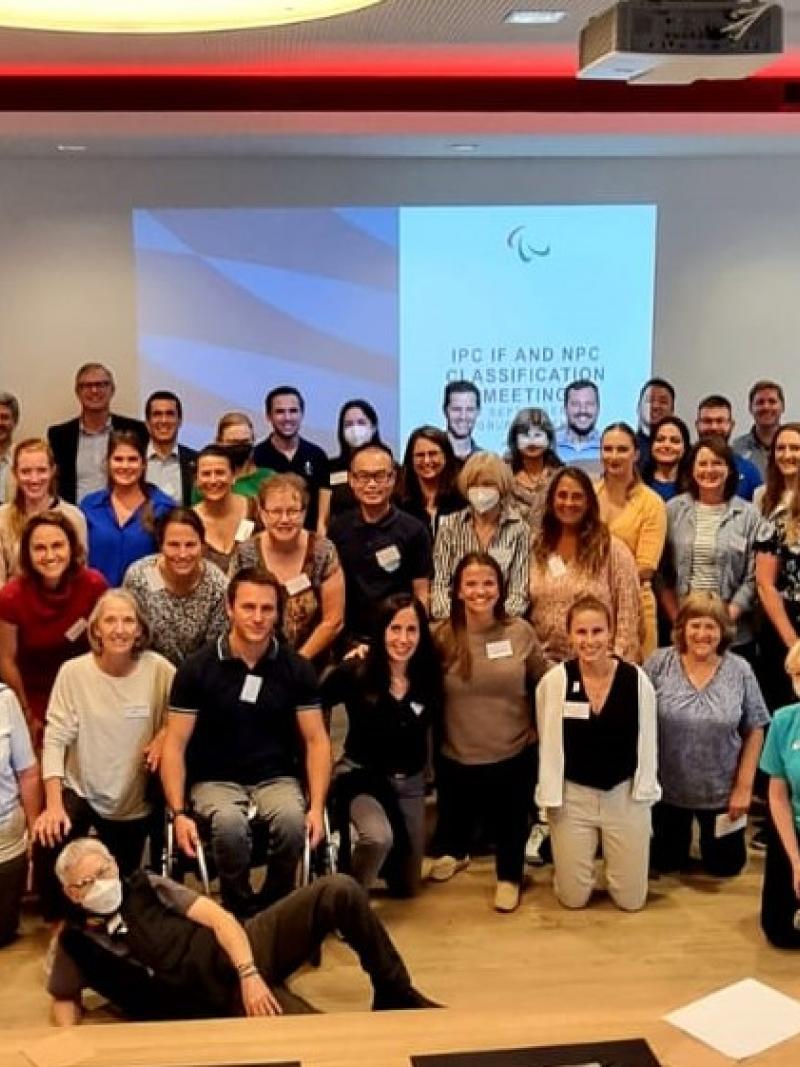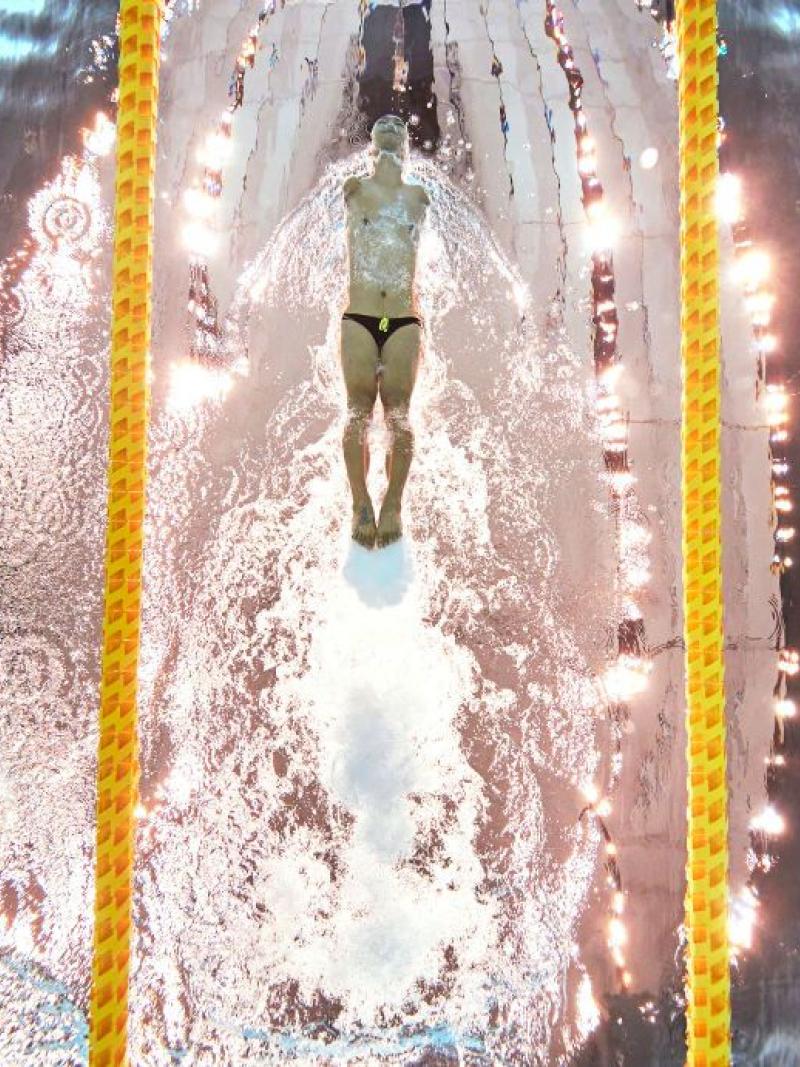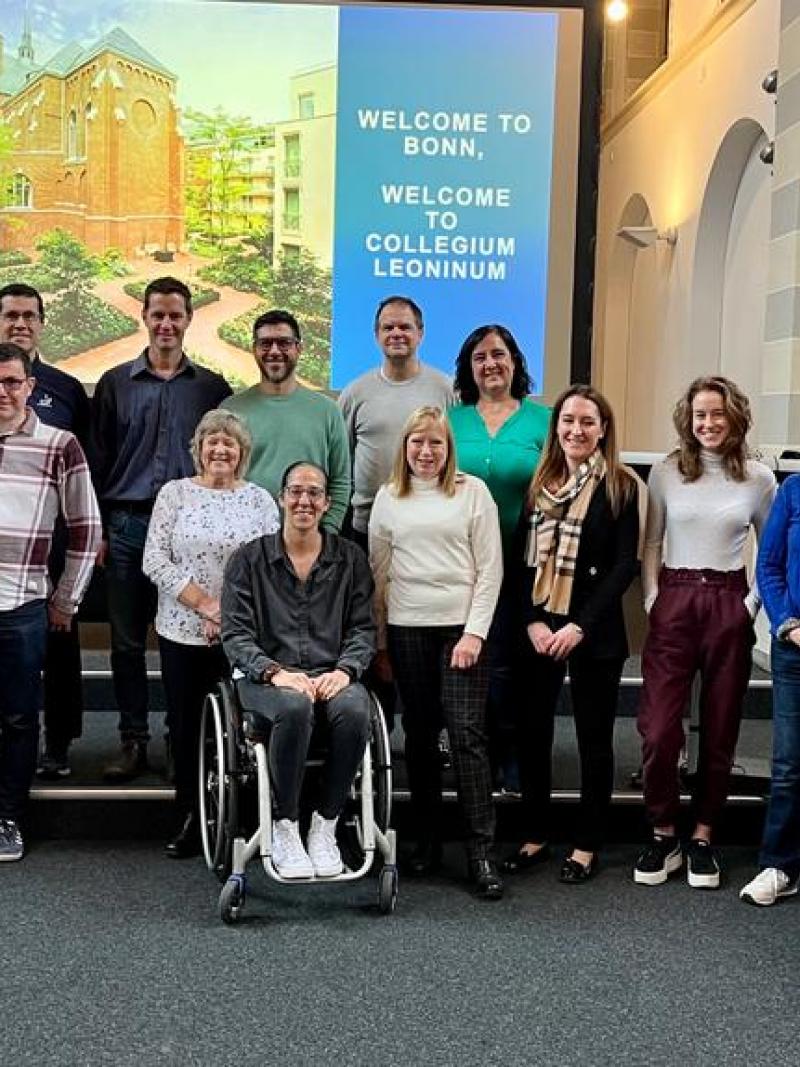New IPC Classification Code made available ahead of Extraordinary General Assembly
- Draft Code proposes improved regulations on underlying health conditions, eligible impairment and sport class assessments, while bolstering regulation on intentional misrepresentation - Scott Field, Chair of the IPC Code Review Team: “The new Classification Code ensures the highest standards of classification that will positively impact the entire Paralympic Movement and athletes.” 08 May 2024
Following a three-year open consultation process that engaged 80 per cent of its membership, as well as the athlete community, the International Paralympic Committee (IPC) has published the final draft of the third edition of the IPC Classification Code at Classification Code review (paralympic.org). The draft Code will now be voted on for approval by the IPC Membership at an online Extraordinary General Assembly (EGA) on 17 May 2024.
Classification is unique to the Paralympic Movement, and the IPC Classification Code is a fundamental document that details how classification must be carried out across Para sports.
Classification performs two vital functions: it determines which athletes are eligible to compete in a sport; and it groups athletes into sport classes with the aim to ensure that the impact of impairment is minimised, and sporting excellence determines which athlete or team wins.
What are the main changes in the draft IPC Classification Code?
The updated IPC Classification Code aims to ensure standardisation and harmonisation within the Paralympic Movement. The new Code provides the highest standards for classification systems, policies, and procedures. This is done in parallel with balancing out the standardisation aspect with flexibility to allow Para sports to cater for their specific needs and capacities, thereby enabling growth and development.
The review process led to many changes and improvements in the Code and accompanying documents, which in turn will lead to continued professionalisation in classification, and improvement of classification systems and practices. Among some of the changes are revised stages of the classification process, including:
- the verification of an underlying health condition
- eligible impairment assessment
- minimum impairment criteria assessment
- sport class assessment
- updated and strengthened provisions across all aspects of the classification process.
In addition, a new International Standard has been produced which focuses on regulating the policies about detecting, investigating, and proceeding with cases of Intentional Misrepresentation.
A detailed overview of the changes can be found at: Classification Code review (paralympic.org).
What is the next stage for the IPC Classification Code Review?
Pending the Code’s approval on 17 May, it is envisaged to become effective in January 2025 for all IPC Members, except for International Federations governing sports on the Paralympic Winter Games Sport Programme – the Code is envisaged to become effective for them in July 2026. As a result, the current 2015 IPC Athlete Classification Code remains in force for the Paris 2024 Paralympic Games and the Milano Cortina 2026 Paralympic Winter Games.
What has been the process to reach this point?
The review of the 2015 IPC Athlete Classification Code was initiated in January 2021 and a Code Review Team, consisting of 28, and led by two-time Paralympian Scott Field, was established to lead the process.
The Code Review process included three consultation phases. Phase one in 2021 focused on obtaining feedback on the 2015 Code and International Standards. Phase two in 2022 was directed at obtaining feedback on the first draft Code and International Standards, in particular on the items addressed in the new draft. Phase three in 2023 concentrated on the updated draft, further specific topics identified throughout the review, and practical items in respect to implementing the Code.
Since 2021 the review process has engaged over 80 per cent of the IPC’s 200 plus members - National Paralympic Committees, International Federations, International Organisations of Sports for the Disabled, and Regional Organisations. There was also a strong focus on engaging athletes, classifiers, IPC Governing Board and IPC Athletes’ Council members, as well as Recognised International Federations, National Federations, and other interested stakeholders.
Around 230 written responses were received from surveys, and over 40 consultations calls were conducted with over 340 participants. A large volume of communication was received via email, and individual calls and in-person meetings were held to maximise the dialogue throughout the review process. All the collated feedback contributed to the final draft of the Code, the review of which was led by the Code Review Team.
The Code is supplemented by three International Standards, each published as standalone documents addressing three distinct topics: Intentional Misrepresentation; Classification Data Protection; and Classification Personnel and Training. The International Standards set out additional requirements and guidance on the implementation and practical application of the Classification Code.
The International Standards are subject to the IPC Governing Board’s approval only once the Classification Code has been approved by the IPC EGA.
Quotes on the IPC Classification Code review
Scott Field, Chair of the IPC Code Drafting Team, said: “The Classification Code is the fundamental document on which all classification in the Paralympic Movement is based. This new Code is a Code for the IPC Members, created in close consultation with and by the Members, based on the feedback received within the last three years of the Code review process.
“This marks the end of the Code review journey and I have no doubt in saying that this version of the Code ensures the highest standards of classification that will positively impact the entire Paralympic Movement, most importantly the athletes. I am grateful for having this opportunity to be the Chair of such an impressive group of 28 experts that were on the IPC Code Review Team.”
Tea Cisic, IPC Head of Classification, added: “I am pleased to say that we drafted the new IPC Classification Code to ensure it supports the needs and development of the Paralympic Movement today and for years to come. This would not have been possible without the feedback received during the last three years and the tremendous work done by the IPC Code Review Team, Classification Compliance and Oversight Committee, the entire Management Team and many other experts and volunteers who have dedicated their time and shared their knowledge and experience to help us shape this document.
“We are very grateful to all of those who have actively engaged in the consultation process – from athletes and classifiers to all representatives of IPC Member organisations, Recognised International Federations, National Federations, IPC Governing Board members, IPC Athletes’ Council members, and other stakeholders.
“We are presenting the Code in the lead up to the Extraordinary General Assembly with full trust that the new Code offers opportunities to strengthen and develop classification processes and practices to ensure delivery to the highest standards across the Paralympic Movement.”







